RUSSIAN ARCTIC:
HIDDEN HERITAGE
HIDDEN HERITAGE
SIBERIAN SUMMER SCHOOL
1–22 JULY 2018
NOVOSIBIRSK
RUSSIA
1–22 JULY 2018
NOVOSIBIRSK
RUSSIA
Days
Hours
Minutes
Seconds
Ask a Question
Feel free to write us
Who are we?
Novosibirsk State University is located at the heart of Akademgorodok, a world-famous research center of the Russian Academy of Sciences. It was founded in the 1960s in the Siberian taiga as the birth place for new ideas and technologies. Now it's a world-class research and educational cluster with 35 research institutes, innovative Technopark and the University at the heart of this well-balanced system.
| Learn more |
About the course
Go North! That is how the wind of change blows. The interest in the Arctic region is as intensive as the "go East" movement 25 years ago after the Soviet Union collapsed. And much more challenging, as this interest involves conflicting aims of national and international agents. Huge, rich, undeveloped, unique and fragile - the Arctic region has always been defined by change and uncertainty: the extent of sea ice, the unusually warm temperatures, new shipping routes opening up, oil exploration efforts. The Russian Arctic is a kind of terra incognita even for many people in Russia – too far, too cold and too big to be real. There are even more barriers to understanding the Russian Arctic for international communities.
Another challenge we are going to meet this summer is to break the boundaries between the disciplines, which have often compartmentalized knowledge about the Arctic. If mankind wants to play in the Arctic region, the only way to make decisions for a better future for us is to see the Arctic as a whole – with all its resources, nature, culture, climate, people, history of Earth and history of people.
Another challenge we are going to meet this summer is to break the boundaries between the disciplines, which have often compartmentalized knowledge about the Arctic. If mankind wants to play in the Arctic region, the only way to make decisions for a better future for us is to see the Arctic as a whole – with all its resources, nature, culture, climate, people, history of Earth and history of people.
Multidisciplinary approach for strategic perspectives
The Russian Arctic as a real thing. Wanted dead and alive: stones, ice, water, life.
Geology, ecosystems, climate, energy and other resources
The Russian Arctic as mankind's playground: how safe and sustainable are our games?
Economic, social and geopolitics decisions for the Russia and the world. The basis for discussion will be in present days of Russian Economy in the Arctic region, as well as social and cultural dimensions of human life in Arctic region: labor migrants, indigenous people, their culture and dependence on fragile Arctic environment.
Application requirements
- The course for students open enough to cover a huge space
and scope of multidisciplinary discussions - English level Upper Intermediate or higher is sufficient
final assessment
The course includes 3 parts: political, economic and social issues of the Arctic region.
In the end of the course the student will have a take-home examination:
an argumentative essay with a maximum length of 4-5 pages.
In the end of the course the student will have a take-home examination:
an argumentative essay with a maximum length of 4-5 pages.
Important dates
January 1
Application Start
April 24
Application Deadline
June 5
Payment Deadline
July 1
Program Start
Applications are now open
Mandatory fees
APPLICATION FEE
Who may apply?
— All students who are currently enrolled at college or university level institutions
— Sufficient English proficiency
— All students who are currently enrolled at college or university level institutions
— Sufficient English proficiency
For all universities
$50
PROGRAM FEE
— Tuition fee
— Study materials
— Cultural activities
— Field trips
— Certificate
Travel, insurance, meals and personal daily expenses should be paid individually
— Study materials
— Cultural activities
— Field trips
— Certificate
Travel, insurance, meals and personal daily expenses should be paid individually
For all universities
$520
Special offers for student groups from partner universities are available
Optional fees
DORMITORY FEE
New dormitories are located within 3 minute walk from the University. Students live in block-type dormitories, a block is composed of one or two rooms, plus a bathroom equipped with a shower and a toilet. Single or double room accommodation is available. A furnished kitchen and a leisure room are located on each floor.
For all universities
$20
Shared Room
Per Course
Per Course
RUSSIAN LANGUAGE COURSES
Russian Language Courses provide opportunities both to start learning Russian and/or to improve your language knowledge. Classes are held in groups of 9–15 students (or small groups of 3–8 students) in the afternoon: 4 academic hours per day, 40 hours and 2 ECTS in total.
Small group
$280
Per course
Large group
$200
Per course
SCHOLARSHIP OPPORTUNITY
Limited number of scholarships are available
Contact us for more details: summerschool@nsu.ru
Contact us for more details: summerschool@nsu.ru
Lecturers
- Valery KryukovDr., Professor, Corresponding member of Russian Academy of Science, head of the Resource Economics Center, chief editor of Russian economic journal "ECO", associate researcher at Fridtjof Nansen Institute in Norway (25 years), member of Norwegian Academy of Polar ResearchField of expertise: resource economics, oil and gas industry development
- Alexander BaranovDr., Professor, head of the chair of Economic Theory, Faculty of Economics, Novosibirsk State UniversityField of expertise: macroeconomics, estimation and forecasting of national economy, specialist in Russian economy
- Alla Anisimovaabd PhD, Faculty of Economics, Novosibirsk State UniversityField of expertise: social identity, cross-cultural management, organizational culture, organizational behavior
- Luiza SaatovaPhD student in program Economics of Environment and Natural resources. The Norwegian Research Consul scholarship holder, participant of Arctic Frontiers Emerging Leaders Program -2017, participant of II International Educational Youth Arctic Forum on the Lake Seliger, RussiaFields or interests: shelf projects in the Arctic region, Public Private Partnership projects in the Russian Arctic
Our contacts
Feel free to write and call us
+7 (383) 363-42-92
summerschool@nsu.ru
summerschool@nsu.ru
International Student Recruitment Office
1 Pirogova str., Office 2325
Novosibirsk, Russia, 630090
1 Pirogova str., Office 2325
Novosibirsk, Russia, 630090
Like and share


